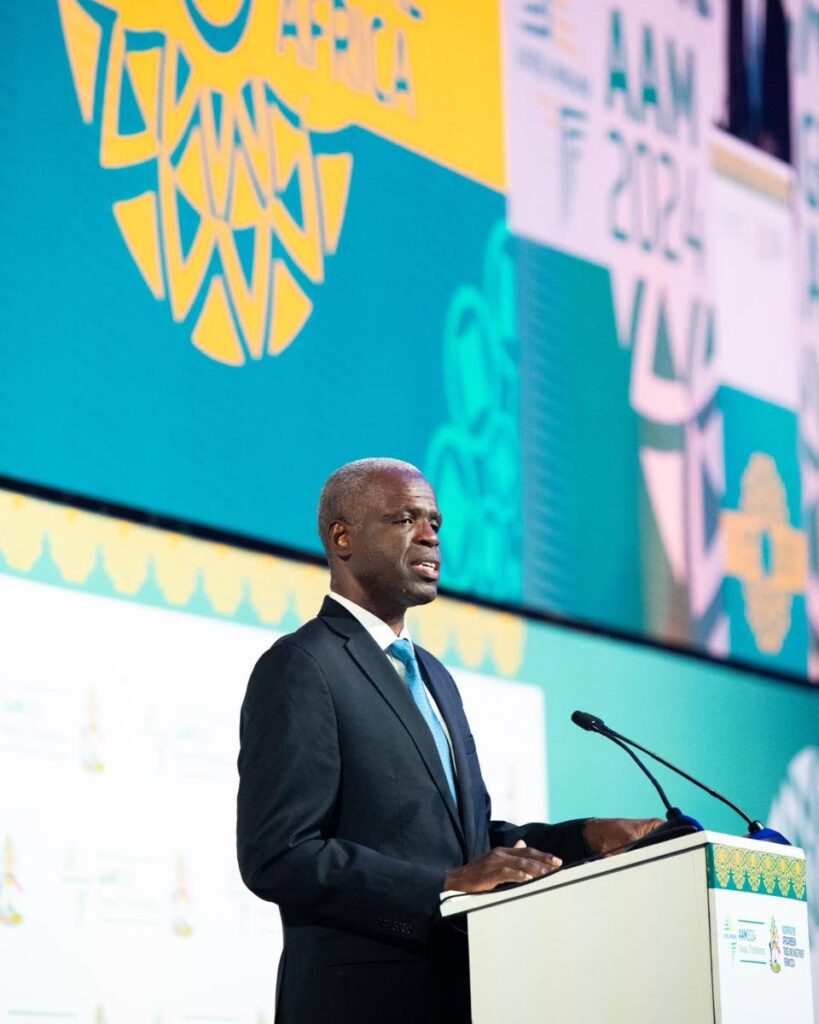Caricom central banks explore cross-border payments

Modernisation of the region’s payment systems is crucial to ensure efficient and easy access to financial services.
This was one of the “calls to action” voiced by Bahamian central bank governor John Rolle.
He was speaking at the 31st Afreximbank annual meeting and AfriCaribbean Trade and Investment forum, taking place in Nassau, Bahamas, from June 12-14.
Rolle said Caricom central banks are exploring a cross-border payment system similar to the Pan African Payments and Settlements System (PAPSS).
“With the support of Afreximbank, Caricom is looking to replicate this system on a pan-Caribbean level.”
He added that the successful implementation of this project will ensure the region delivers on targets already being set for an international payments system, which, at the retail level, is more integrated, faster and significantly cheaper for the average consumer.
“If we perfect the multilateral cross-border payments settlements arrangement, it would also help us conserve on the use of precious international reserves, especially if we expand intra-regional trade.”
Rolle identified innovation as the key driver for the region’s resilience and economic transformation.
“Bahamas’ digital currency, the Sand Dollar, is a significant feat, given the intensive regulatory and technical groundwork involved.
“It is premised on an absolute need to speed up the modernisation of our payments system and lay a more resilient foundation on which domestic commerce can swiftly recover after a destructive climatic event.”
He added that this forum is the perfect platform to plan the course for greater African-Caribbean trade and investment.
According to the IMF’s April 2024 World Economic Outlook, the region’s economies grew by 8.3 per cent on average in 2023.
Although this had slowed from the 14 per cent expansion achieved in 2022, it was a growth path consistent with the unwinding of momentum that completed the recoveries from the covid19 pandemic.
Rolle highlighted that the average regional growth outlook, while positive, still faces significant downside risks, given sustained geopolitical tensions and higher interest rates that central banks have imposed to curb inflation.
“Such developments have tempered global growth projections, and, given the increased debt taken on during the pandemic, further limited the capacities of Caribbean governments to finance the investments needed to bolster resilience and strengthen longer-term growth prospects.”
Rolle said this forum presents a great opportunity to leverage the shared history, identities and cultures of AfriCaribbean nations to forge stronger trade and investment bonds.

Comments
"Caricom central banks explore cross-border payments"